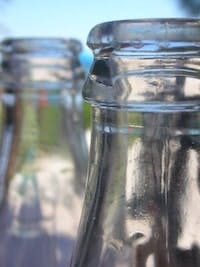The Coca-Cola Co. and World Wildlife Fund (WWF) are working to advance the Coca-Cola system’s sustainability stewardship with the announcement today of new global environmental goals and an expanded global partnership.
These goals, which complement other Coca-Cola well-being and community commitments, focus on sustainable management of water, energy and packaging use as well as sustainable sourcing of agricultural ingredients through 2020.
Building on the initial successes of their nearly decade-long partnership, Coca-Cola and WWF have agreed to extend their efforts by meeting new conservation and performance targets, promoting the integration of nature’s value into decision-making processes and convening influential partners to help solve shared global environmental challenges.
“At Coca-Cola, we are deeply committed to working with partners to address our collective environmental challenges and responsibly manage the planet’s resources,” said Muhtar Kent, chairman and CEO of the Coca-Cola Co. “As we face a resource-stressed world with growing global demands on food and water, we must seek solutions that drive mutual benefit for business, communities and nature. Working with WWF will continue to challenge our company to advance our sustainability programs, and WWF’s expertise will be instrumental in reaching our environmental performance goals, some of which they help us set.”
“We are witnessing unprecedented demands on natural resources around the world. Continuing with business as usual puts everything at risk, including the viability of business,” said Carter Roberts, president and CEO of the World Wildlife Fund. “These problems can only be solved by working together, and our work with Coca-Cola has proven that collaboration can amplify and accelerate the impact we need.”
Under the renewed and expanded partnership, Coca-Cola and WWF jointly developed new 2020 environmental sustainability goals for the Coca-Cola system – the company and its nearly 300 bottling partners in more than 200 countries. These goals include:
- • Improve water efficiency by 25%. Coca-Cola will improve its water use efficiency per liter of product produced through operational advancements throughout the Coca-Cola system. This target complements the 21.4% improvement in water use efficiency achieved from 2004 through 2012.
- • Help ensure healthy, resilient freshwater systems. Coca-Cola and WWF will expand their joint conservation efforts to 11 key regions across five continents, including river basins of the Amazon, Koshi, Mekong, Rio Grande/Bravo, Yangtze and Zambezi; the catchments of the Great Barrier Reef and Mesoamerican Reef; and key regions in the Amur-Heilong, Atlantic Forests and Northern Great Plains.
- • Reduce CO2 emissions embedded in “the drink in your hand” by 25%. Coca-Cola will work to reduce the greenhouse gas emissions across its entire value chain, making comprehensive carbon footprint reductions across its manufacturing processes, packaging formats, delivery fleet, refrigeration equipment and ingredient sourcing.
- • Responsibly source material for PlantBottle packaging. Coca-Cola will work with WWF to assess the environmental and social performance of plant-based materials for potential use in its PlantBottle packaging. This will enable the company to meet its goal to use up to 30% plant-based material for all its PET plastic bottles by 2020.
- • Sustainably source key agricultural ingredients. Coca-Cola will work to sustainably source its key ingredients, including sugarcane, sugar beet, corn, tea, coffee, palm oil, soy, pulp and paper fiber, and orange. Coca-Cola also has established Sustainable Agriculture Guiding Principles and will work with WWF to implement the guidelines throughout the Coca-Cola system for these commodities. In addition, Coca-Cola is also working to sustainably source lemon, grape, apple and mango.
In addition to the goals jointly developed and announced with WWF, Coca-Cola has reaffirmed its water replenishment goal and evolved its package recovery goal through 2020.
Source: Coca-Cola Co.


